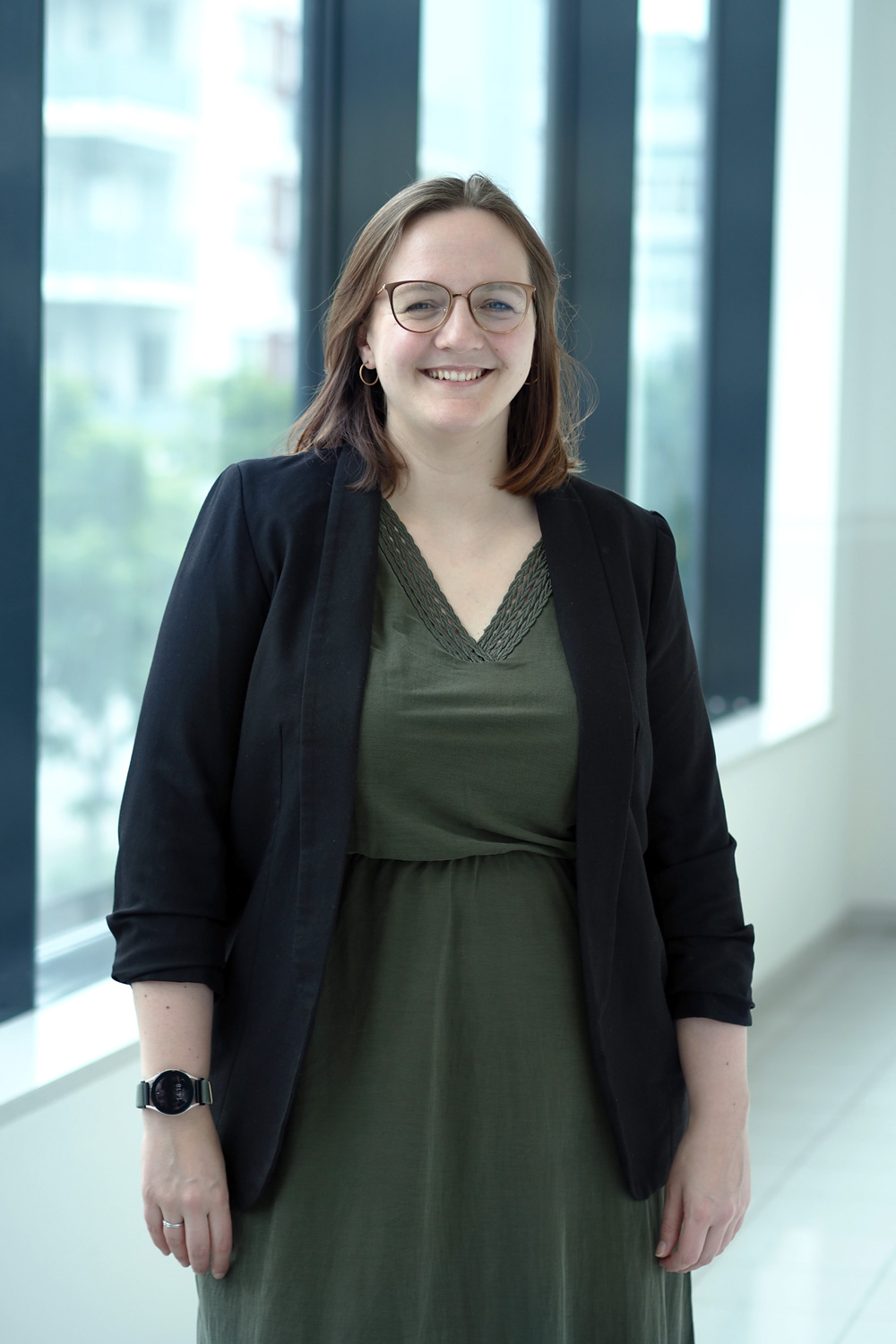Modern IT management reduces costs for the city of Cologne
Satisfied customer since 2003 The city of Cologne is growing and with it the demands on the underlying IT: change requests previously had to be entered manually and executed at around 100 different locations, the lack of a “four-eyes principle” led to an increased security risk and the inconsistent data records of the more than 8,600 user accounts called the efficiency of the system into question.
As the responsible IT service provider, the Office for Information Processing (IV) of the Cologne city administration therefore had no choice but to implement a modern provisioning solution.

The initial situation: Manual change services and outdated user database raise security issues
All user and computer changes had to be implemented manually by the central IV customer service department following notification by the decentralized user advisors (DZB).
More than 18,000 orders were processed annually via the HelpDesk system and first sent to customer service as an Excel file before being manually transferred to the respective target system.
“There was no standardized template for a change request. Although all requests were submitted uniformly via the ticketing system, they were filled out differently in Excel files. The result was a kind of ticket ping-pong between the central IV customer service and the DZBs. To make matters worse, all change requests had to be manually transferred from the Excel file to the target systems and processed at different stations,” recalls Ralf Sutorius from the City of Cologne’s Office for Information Processing.
“The bottom line was inconsistent data, media breaks and unclear change requests, which made daily work more difficult.” Maintaining the user database also proved difficult: almost 10,000 user accounts had to be regularly checked for errors by hand.
The last manual checks revealed numerous incorrect entries – be it outdated data, orphaned or duplicate accounts.
In addition to high costs and additional time, the IT system was no longer able to meet the increased security expectations.
Extensive access rights had to be granted to 75 administrators alone.
The tender: Cologne and Bonn opt for provisioning solution from econet
Like the city of Cologne, the federal city of Bonn was also faced with the task of finding a solution for IT management.
Together, they looked at the processes in the area of user administration and recognized the need to increase efficiency.
In concrete terms, this meant: no more redundant data maintenance, but higher data and system security at lower operating costs.
In order to meet these requirements, an “automated change service” was to be introduced.
This application enables the creation, modification and deletion of user and computer objects and their attributes to be automatically transferred to various target systems.
Administrators can thus process orders more quickly and at the same time avoid maintaining data twice.
“Ultimately, the aim was to optimize user management, reduce the number of media discontinuities and outsource more rights to the individual DZBs again,” says Ralf Sutorius.
The requirements were summarized in detail in a specification sheet and the Europe-wide tendering process began in January 2003.
“With many of the bids submitted, we would have had to invest a disproportionate amount of additional development work,” says Ralf Sutorius.
Due to the strict catalog of services and the high demands on the new provisioning solution, only two providers were shortlisted in the end.
In July 2003, the City of Cologne and the Federal City of Bonn finally commissioned Munich-based econet AG to set up an automated change service in an environment of 12,000 users.
With cMatrix, the provisioning solution from econet, Cologne and Bonn created the basis for a largely automated and efficient operation of their infrastructure.
“In addition to the high customization and implementation speed, the scope of the solution and the flexibility in creating new services were the main factors in our decision,” explains Ralf Sutorius.
The project: Standardized processes and automatic implementation simplify the management of user data
The City of Cologne placed the criteria “standardized processes” and “high degree of automation” at the top of its list of priorities for the IT solution it was looking for.
With the modular cMatrix solution, which is based entirely on SOA technology, IT resources can now be actively managed, file repositories created and authorizations assigned.
These processes are initiated via standardized web interfaces and automatically implemented in the target systems.
These processes can be illustrated using an example: As soon as a new employee is hired by the City of Cologne, a DZB enters all relevant data for the new user via an easy-to-use interface.
Directories are created automatically, the corresponding rights are defined and the required file storage and applications are activated.
If an employee leaves the company or changes position, all it takes is a single change in cMatrix and access to business-critical applications and data is automatically blocked.
The transparent structures ensure that once authorizations have been assigned, they are no longer overlooked and that all employee authorizations are controlled and documented from the time they join the Cologne city administration until they leave.

The time frame: successive implementation in two stages
The introduction of the new provisioning solution was basically implemented in two phases over a period of seven months: First, detailed planning was carried out to determine which requirements the solution should meet and which data should be recorded.
The interfaces and input masks were then developed.
This first phase lasted a total of four months and enabled regular comparison tests with an internally developed prototype.
Once the first implementation phase had been completed, work began on training the user groups on the new IT system.
At the same time, the target system actions were developed.
After a further three months, the final acceptance of the project took place – enough time for the users to familiarize themselves extensively with the new solution.
Following the successful implementation of the provisioning solution, the inventory data was imported and the change services were gradually switched from manual processing to cMatrix.
The results: More efficiency and economy through standardization and automation
The introduction of the automated change service significantly increased the efficiency of the IT service provider in Cologne.
In the past, less than ten percent of all processes were standardized and automated, which meant that it could take up to eight hours to process a change request.
With the new software solution, a high degree of automation has been achieved, reducing the processing time to a minimum of five minutes per request.
The City of Cologne benefits from the implemented provisioning system in several ways: thanks to the automation and time savings, resources can now be used more effectively and also much more efficiently.
This is because the newly gained capacities mean that the administrators can now work continuously on optimizing the underlying IT infrastructure and thus deliver considerable added value to the city administration.
With the introduction of the automated change service, the City of Cologne is taking on a pioneering role and feels vindicated in its choice of the new IT solution.
“The investment will pay for itself within less than two years,” Ralf Sutorius is convinced.
“Our project has shown that it is possible to achieve lasting savings through investment, even in times of tight budgets.” The provisioning solution is also proving to be a successful solution in terms of security and transparency: the audit-proof logging of processes and the “four-eyes principle” when approving applications enable a complete overview of who changed what and when at all times.
The fact that the processes mapped in cMatrix can be changed or expanded quickly and easily thanks to the flexible architecture and that higher data quality is guaranteed by the central data management are further examples of the many benefits achieved in Cologne through the introduction of the new provisioning solution.
The future: The city of Cologne as a role model
“With cMatrix, we have optimized our IT management and achieved valuable time and cost savings.
We have also brought more security and data transparency to our systems “, summarizes Ralf Sutorius. “The new solution was very well received by the users and ensured general satisfaction.” The implementation of the new provisioning solution had an additional surprise effect that those responsible at the City of Cologne had not expected: “Inquiries from neighboring municipalities were almost foreseeable.
But the fact that we attracted the interest of large industrial groups with this project came as a real surprise to us. ”





